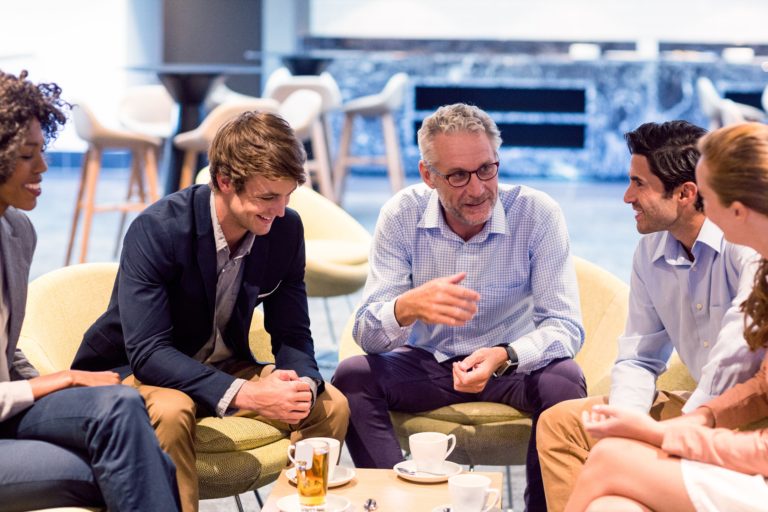Fostering Innovation and Collective Flourishing
May 15, 2019
In our previous article How social influence can hold your organisation back, we explored how approaches to social influence and motivation can evolve.
At all stages of evolution, there are a number of factors that can influence healthy thriving. In this article, we explore practical ways to enable the kind of social motivation and influence that encourages innovation and growth.
Enabling cultures of unique contribution
Many organisations seek to enable people to make a unique contribution through creating cultures of innovation and growth. Yet their innovation programs often exist in a vacuum of nourishment and as a result have limited impact. Without a culture of nourishment and development that can enable purposeful self-expression, organisational aspirations towards innovation can be severely limited and self-defeating.

To enable a culture of innovation and growth requires that we support social belonging, recognition and acceptance in ways that uplift and empower the uniqueness of each human’s contribution. The following are some practical suggestions:

FROM Diversity TO Diversity and Inclusion
Healthy diversity and inclusion mean that my uniqueness is included, valued and celebrated. While organisations are getting better at meeting diversity targets around gender, culture and age, most are a long way away from genuine inclusion or a true understanding of diversity.
Some practical suggestions to explore how to generate greater inclusion:
- Learn more about each person in your organisation or team (personally as well as professionally). Seek out and celebrate areas of difference as well as commonality. Some questions to explore:
- What is unique about them? How can we help this to flourish?
- What drives and motivates them? What is their purpose?
- Create a culture where each person is on a journey of personal discovery in relation to their uniqueness and purpose and bringing this out
- Become aware of and challenge group-think:
- When a unique suggestion arises, explore and experiment with it
- Develop the skills of better questioning in everyone in the organisation (critical thinking, disruptive, genuinely curious)
- Find ways to encourage deep listening – and share time speaking
FROM Extrinsic Motivation TO Intrinsic Motivation and Valuing
Many of the ways social motivation and influence have been leveraged in organisations have inadvertently encouraged extrinsic rather than intrinsic motivation. We see this in almost all reward and recognition approaches and in particular short term incentives. Extrinsic motivation is further entrenched in methods for encouraging or discouraging certain behaviours and attributes such as through traditional feedback and performance mechanisms.
To begin to undo the pollution from years of these types of practises we suggest the following:
- Start to look at people as whole human beings with vast potential to be expressed rather than people to motivate and utilise
- Identify and eliminate processes and ways of working that reinforce extrinsic motivation and valuing
- Replace these with processes and ways of thinking and working that help people to find greater levels of intrinsic motivation, personal agency and develop critical thinking
- Some examples from our clients include: moving from “delivering results” TO “running your business with critical thinking and autonomy” and “achieving in your role” TO “finding unique ways to help our customers and community”. Other examples are enabling greater delegated authority, encouraging principle-based decision making and development to support self and systems awareness
- Develop self-reflection and awareness at every level of the organisation
- Encourage people to think broadly and systemically about their purpose regardless of their role, like the NASA Janitor whose mission was to “put a man on the moon”
- Celebrate unique and different thinking (when it is aligned to organisational health, care and evolution) rather than conformity

FROM Compliant TO Purpose-led Expression
Traditional compliance requires people to be subject to rather than object to norms, policies and procedures. This limits ownership and personal responsibility, as borne out in many failures and disasters.
As our clients evolve their culture, they adopt an approach that focuses on helping all people in the organisation to understand the reason for organisational boundaries and expectations, and how they align to purpose. Questioning and challenging boundaries and expectations is encouraged, particularly when they inhibit the organisation’s aspirations.
This shift means people make decisions based on organisational purpose rather than rules and regulations. To enable this safely requires evolution of the entire culture towards greater responsibility and alignment of purpose. It also requires eliminating “competing” priorities in different functions.
FROM Transactional TO Care Based Relationships
In many organisations, “being nice to each other” has been valued over being real and authentic with each other. This can lead to superficial cooperation rather than genuine collaboration.
Genuine collaboration absolutely includes deep respect for each other. With a care for customers, community and stakeholders at its core, collaboration enables people to challenge and question each other, without taking things personally. Some ways to build a culture of care include:
- Acknowledge people as whole and unique human beings, not as resources. Renaming the Human Resources Department could be a good start but it shouldn’t end there!
- Ensure all organisational communication and policies cultivate a language of care and a language of valuing people.
- Develop the capacity for greater care for all stakeholders to the organisation including community and planetary ecosystem
- Have purpose at the centre of all collaboration conversations
- Ensure care is at the centre of every conversation and decision and that rather than care being seen as “wishy washy” it is the quality that enables real relationship, effectiveness and dialogue.
- Random acts of kindness to create a human experience and reinforce the value of a humane working environment
By encouraging courage and self-expression through a healthy sense of belonging, inclusion and contribution, the organisation creates the foundation for collective thriving and contribution.
In the next installment of this series of articles we will explore practical ways to build social capacities that make a broader and more expansive contribution to society through co–achievement, social contribution and social evolution.
At Adaptive Cultures we work with organisations to enable ongoing evolution.
If you are interested in being part of the Adaptive Cultures Community or bringing these ideas to your organisation you might like to apply for our next Adaptive Cultures Practitioner Accreditation
Our Adaptive Cultures Community
Our Global Community is an enriching space for culture practitioners to share, learn from, explore and develop emerging practices in support of their clients developing needs. On our community platform we share methods and tools, ask questions, conduct developmental conversations and learn together.
Read the Adaptive
Organisations Whitepaper
Download our Adaptive Organisations Whitepaper and learn how to evolve through change and complexity. To receive a copy, please fill in your details below and a copy will be emailed to you.


